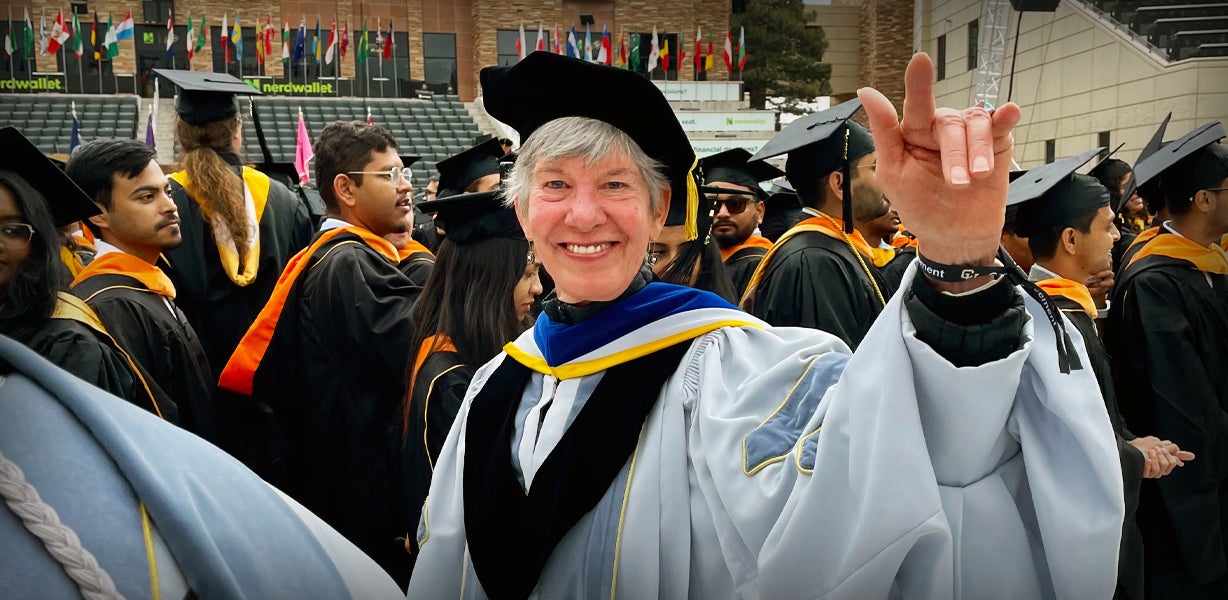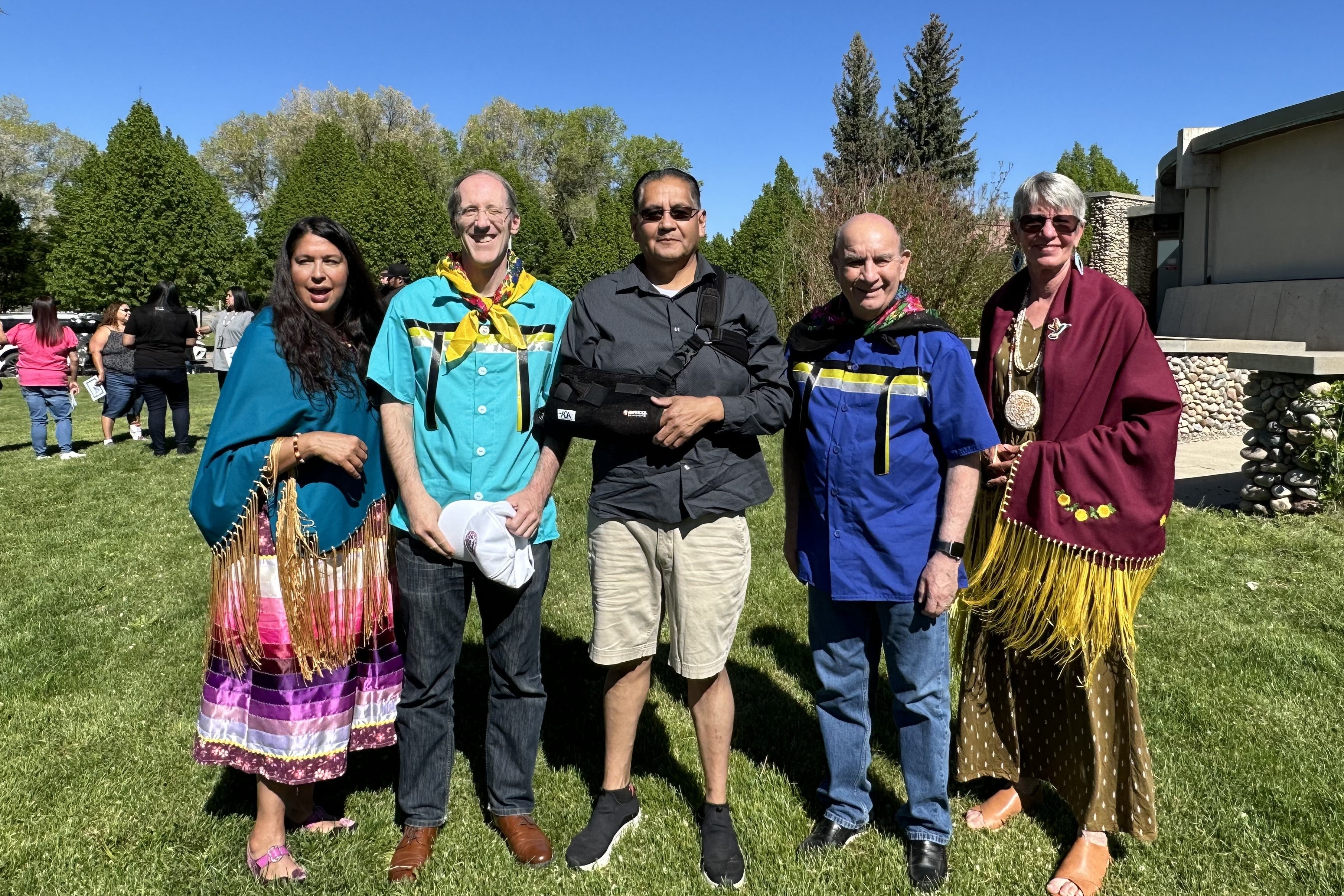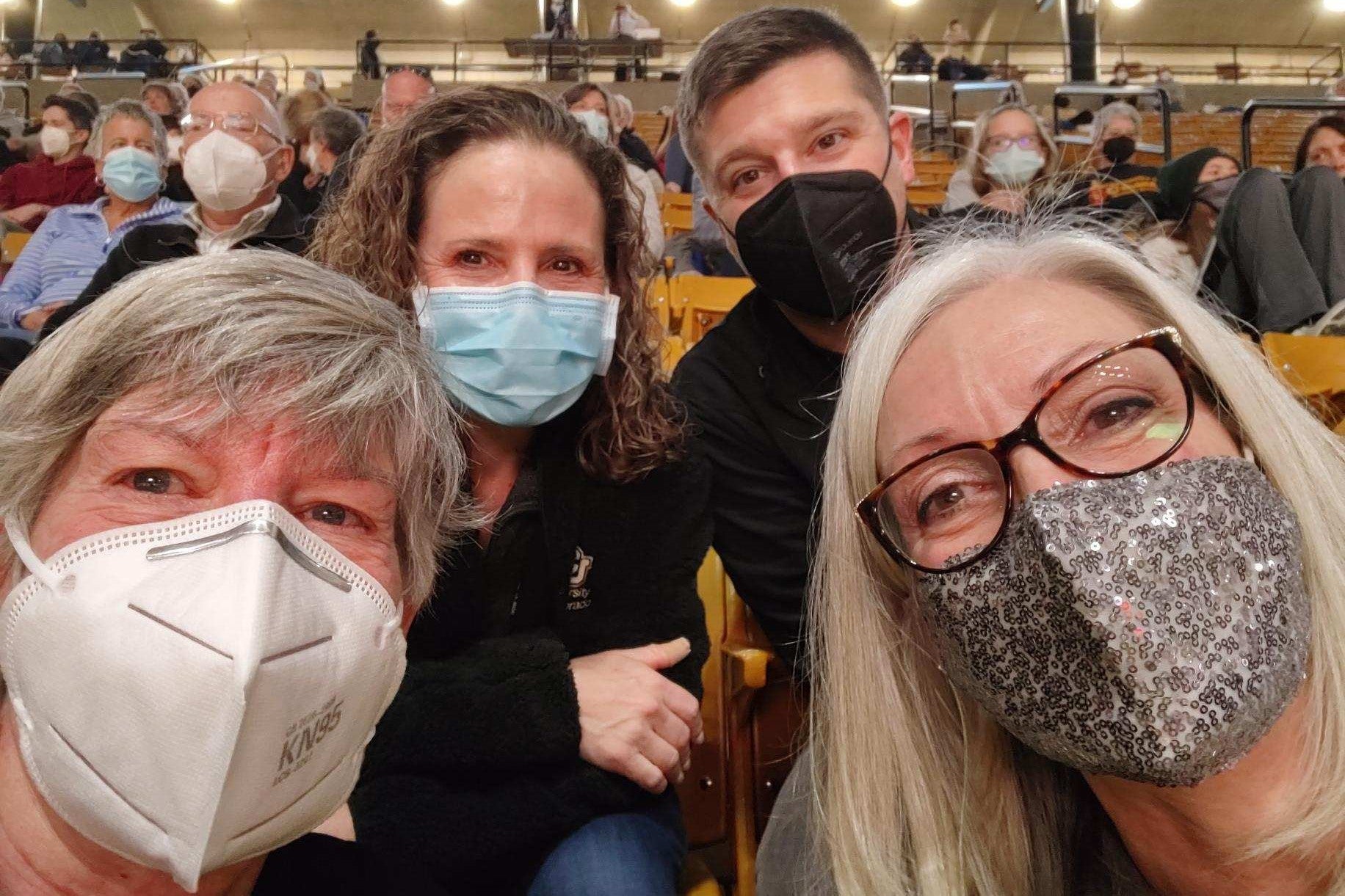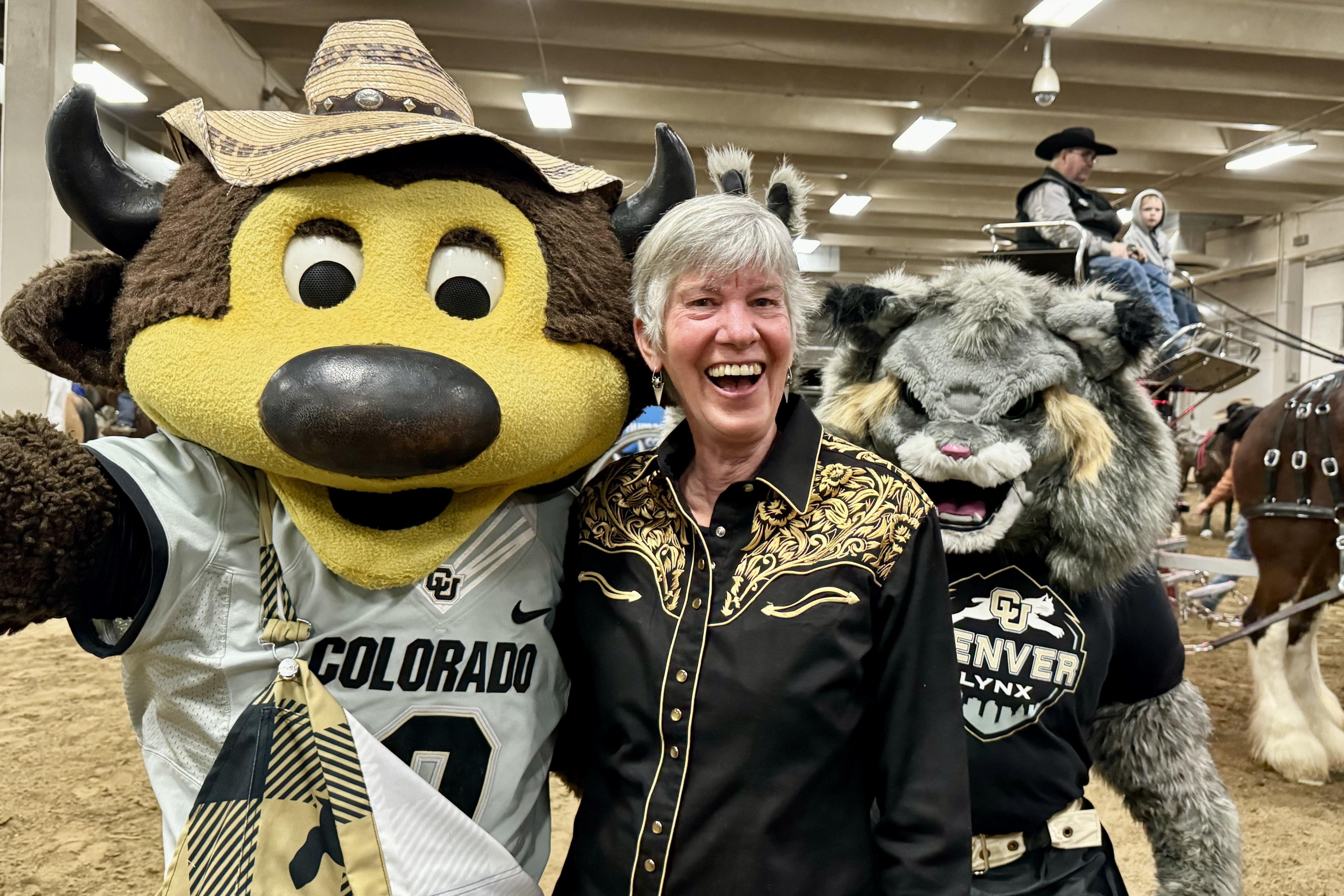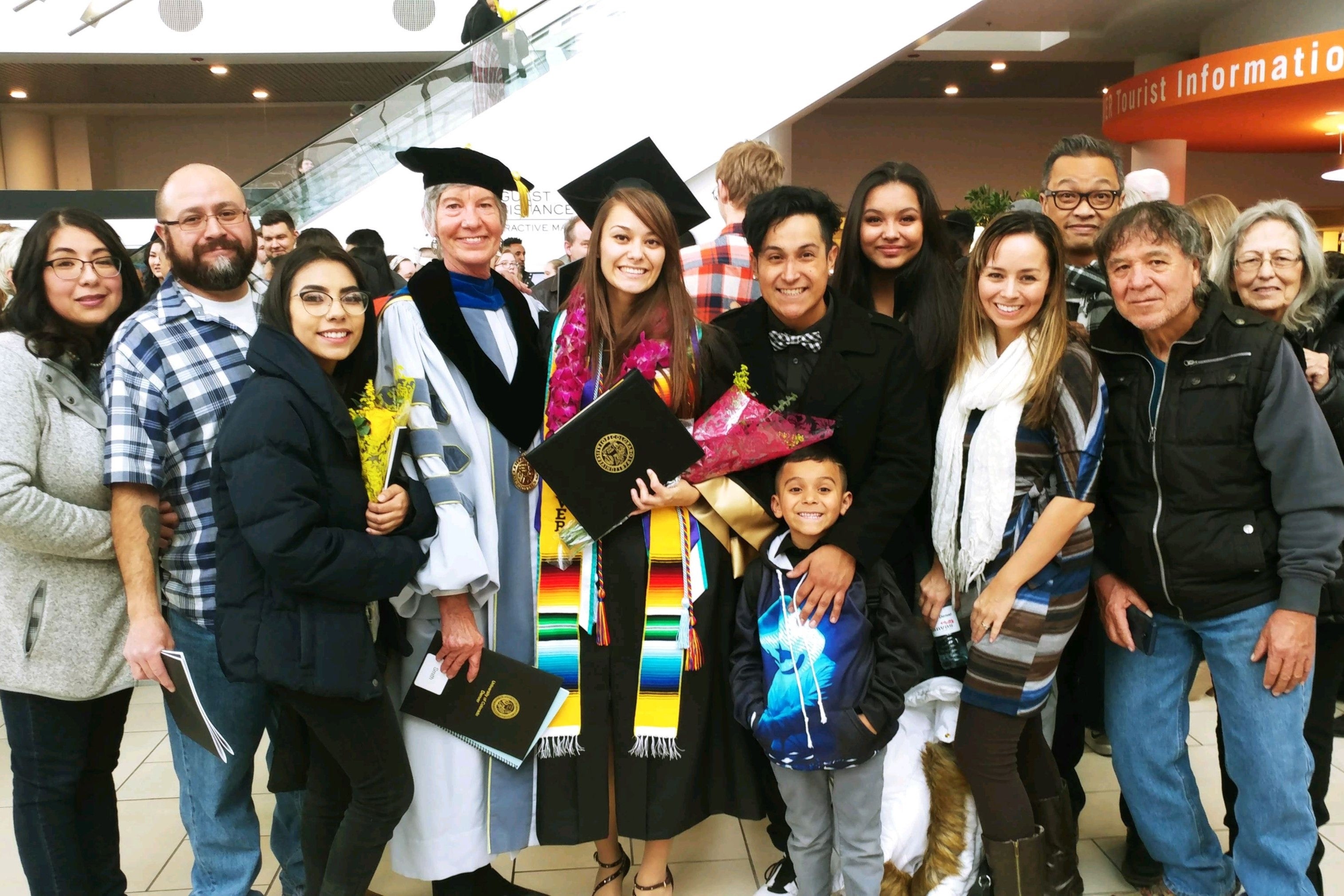Five questions for Lesley Smith
Note: This is the second in a two-part series featuring the members of the Board of Regents whose terms conclude next month. Today, a conversation with Regent Lesley Smith; click here for last week’s conversation with Regent Glen Gallegos.
Elected to her first term in 2018, Regent Lesley Smith had planned to spend this year running statewide for a second term as the board’s at-large member. And while she will indeed be taking an oath of office next month, it will be the one for her newly won seat in Colorado’s House District 49.
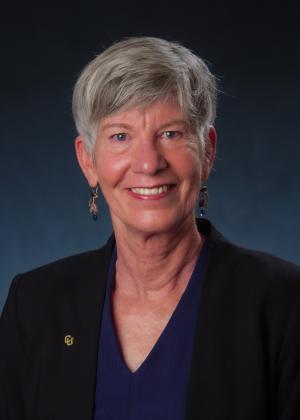
With her home state facing drought, wildfires and other extreme weather events, the Boulder Democrat felt called to draw on her expertise as an environmental scientist while serving as a state lawmaker.
“My scientific background is what drew me to the legislature,” said Smith, who spent nearly 30 years at CU Boulder’s Cooperative Institute for Research in the Environmental Sciences (CIRES). “But I also hope to be a strong voice at the Capitol for higher education. There are not many people with my expertise in higher education there, so I’m excited to bring that advocacy and that voice to the legislature.”
Smith will bring not only her experience from CU’s governing board, but from her earlier stint as an elected member of the Boulder Valley School Board, where she served for eight years.
“What I’ve learned is, you need to get to know your colleagues, see where their interests lie, and make sure you do the stakeholding to get things done,” Smith said. “I know it takes patience and there’s going to be a steep learning curve. I have to give myself grace and space to say, OK, I don’t know everything. But I’m going to work hard to be an effective legislator.”
Smith says exercise, including Pilates and tennis, will remain a priority for her so she will have a pressure-relief valve during the hectic session. She and her husband, Michael, who retired last year from the National Oceanic and Atmospheric Administration (NOAA), also are expecting to take on the new title of grandparents in February.
“We’re looking forward to lots of family time next year,” she said.
1. Of the work you’ve done with the Board of Regents during your six years, what stands out in your mind as the most significant?
I feel like I helped strengthen the board in terms of being a really high-functioning, policy governance board. My first couple of years, we had had some pretty wild board meetings where resolutions got slapped down, or maybe were brought without the chair or other members having any prior knowledge. So we got the resolution process policy changed. When anybody has an idea for a policy they’d like to bring forward, it goes to a committee, it’s aired there and then noticed at a board meeting. It gets input from our three shared governance groups, it gets discussed and maybe modified in committee, and then it goes to the board for a vote. I think that’s really helped.
The other thing I’m really excited about is all the work that we’ve done for Native American students, including the Southern Ute Indian Tribe. I’ve gone down to the Reservation twice, and I’m really proud that we signed the Memorandum of Understanding and are providing scholarships at CU Boulder. I was honored to dance in the Bear Dance with a beautiful shawl gifted to me. One of the council members also gave me a beaded medallion. I’ll definitely wear that when we have Ute Day at the Capitol.
Regent Irene Griego invited me to go with her to the Denver campus to meet with Native American students and talk about their issues. One of the suggestions was to have a systemwide land acknowledgment statement, which we now read at the beginning of our board meetings. We also helped initiate a bill that would allow out-of-state students who have tribal ties to Colorado to pay in-state tuition. All the other institutions of higher ed thought it was such a great idea that they signed onto the bill, too.
2. What was the most challenging aspect of serving on the Board of Regents?
I would say there’s two areas. One, CU leadership was very stable before I got on the board. Since then, we’ve had three presidents and a number of lead counsels and board secretaries, new auditors and treasurers. It has been a lot of change, but with change comes opportunities. Certainly, being vice chair during covid was challenging – we had so many meetings. Thankfully, we weathered that storm well.
The other area that’s challenging is when board members have a really narrow agenda and that’s all they focus on. Sometimes their agenda may not fit into what we should be doing as a board.
3. You brought to the board your voice and perspective as a longtime faculty member at CU Boulder. How did your understanding of the university system evolve over the course of your six years as a regent?
It evolved quite a bit. Having spent 30 years on the Boulder campus, I felt I knew CU fairly well. Being on the board really opened my eyes to how complex the CU system is. And I learned that it’s such an integral part of the state, as the top educator, one of the top employers, and an economic driver. As a legislator, I hope I can highlight the critical role CU and all higher ed institutions play in making our state thrive.
Each campus is very different and has different challenges, different strengths. I didn’t really know much about the CU Anschutz Medical Campus, and I found out what a powerhouse it is, with the hospitals and the breakthrough research. To learn how much of a footprint it has across the state and even the states around us is pretty amazing. I also learned a lot about all the auxiliaries, like the athletics budgets. And I learned a lot more about how the higher ed budgeting process works at the state level, which is probably going to help me a lot as a representative.
4. If a newly elected regent were to ask for any advice, what would you tell them?
I learned this when on I was on the school board, and it held true as a regent: If you want to get anything done, you need at least five votes. To do that, you need to build a coalition. You need to get to know your fellow regents, talk to them, and find out how they feel about anything you might bring forward as a resolution. It’s also important to get feedback from the shared governance groups.
5. What will you miss about serving on the Board of Regents?
I’m going to miss a lot. I will definitely miss my board colleagues, the administrators and staff in the system office and the chancellors. We’re all a team working together. I’ll miss being with them at events like CU Night at the Rodeo.
I will miss the meetings and visits on the campuses. I’ve loved visiting each of the campuses and talking with different students, faculty and staff.
I will miss learning about the amazing research our university does. A highlight was visiting the quantum clock with Sen. Michael Bennett. I picked a poor grad student’s brain apart about everything. After that, I understood enough about the quantum clock and comb lasers to explain it to my husband, who has a Ph.D. in physics! I was really excited about that. When I talked to Massimo Ruzzene (CU Boulder Vice Chancellor for Research and Innovation) about how excited I was, he said the grad student was excited that I was so interested in it! I really love interactions like that. It keeps my energy up, because sometimes it’s a lot of work and can be a little bit of a slog.
The other high point I’ll miss are the graduations. I have loved to go to each campus, where every graduation is different. Seeing students receive their diploma and seeing their families and friends clapping and so happy, it just warms my heart.


